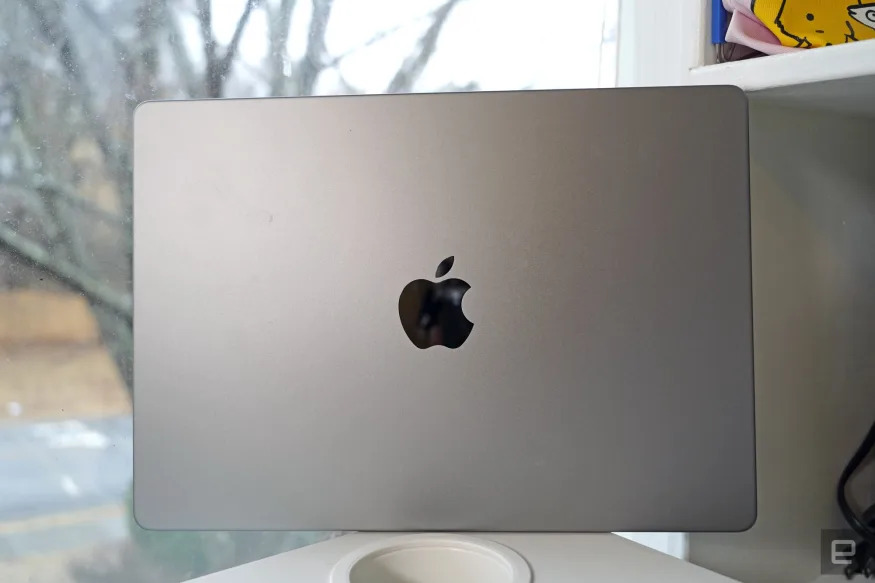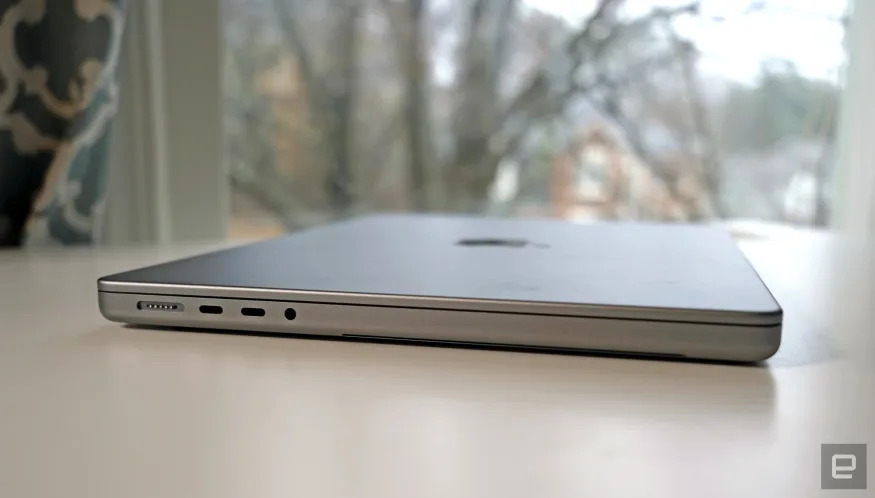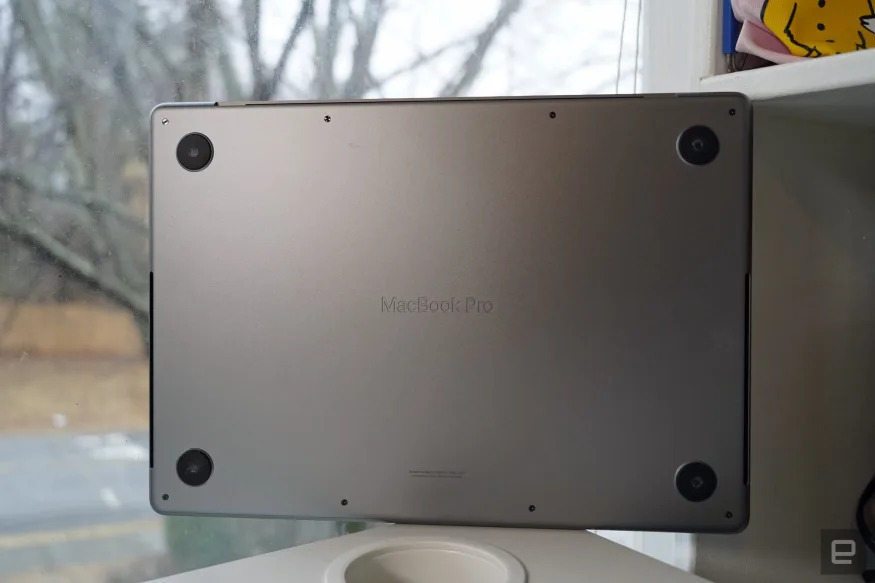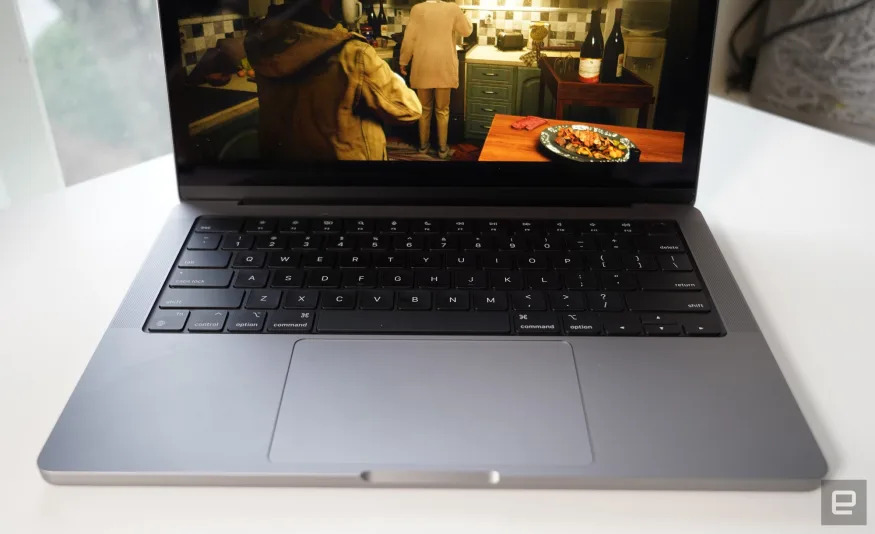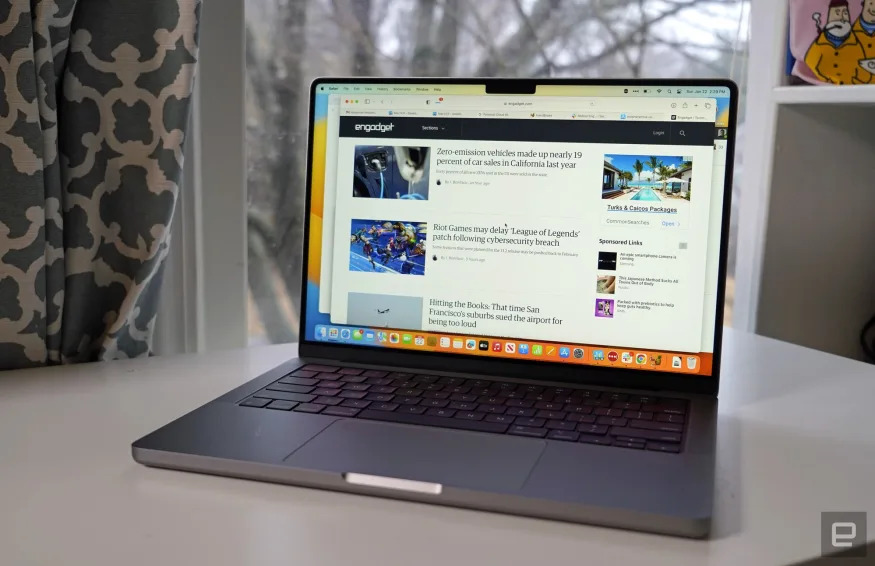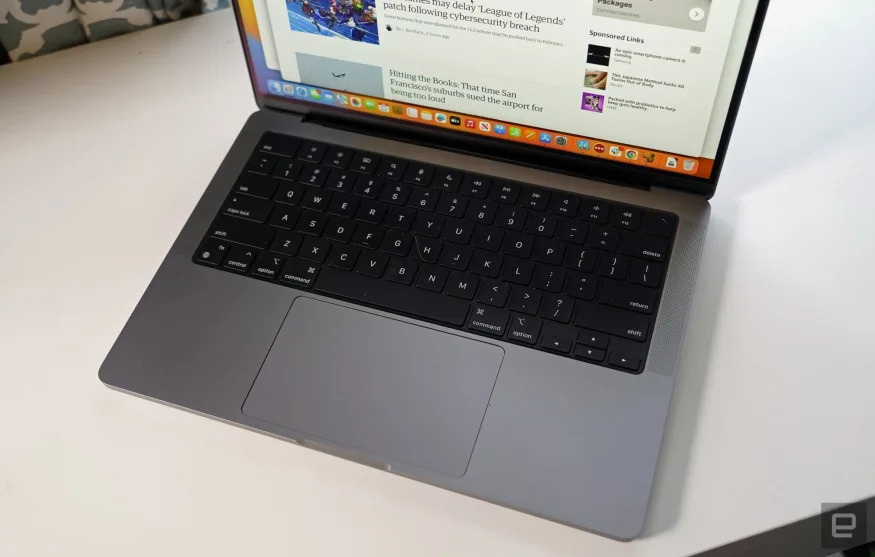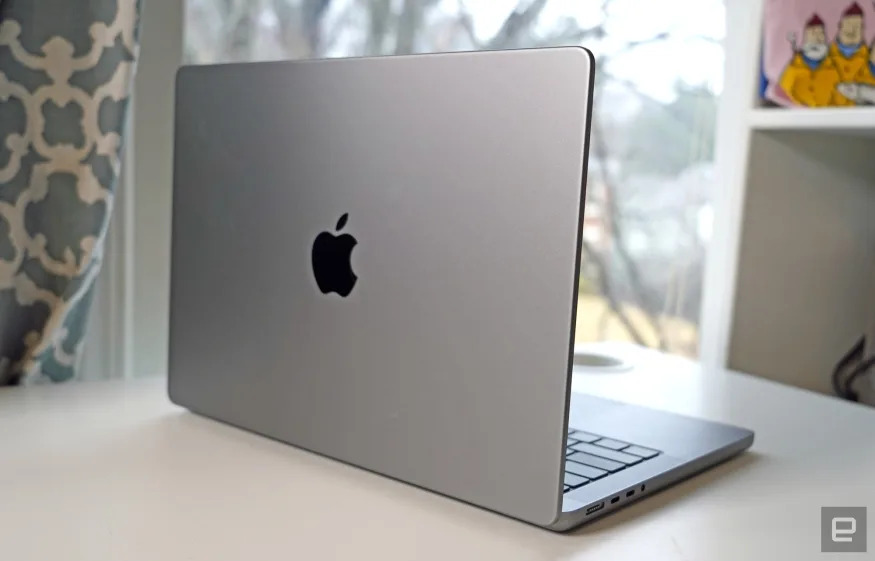With its last batch of MacBook Pros, Apple gave its more demanding fans everything they wanted: Tons of ports, lots of power, and genuinely great screens. As usual, the company is following up that major redesign with a straightforward chip upgrade, featuring the new M2 Pro and M2 Max. They’re faster, as you’d expect, but they also deliver a few features power users may appreciate, like 8K video output and support for WiFi 6E.
Once Apple locks in a redesign, it typically doesn’t mess with a good thing (save for complete disasters like the trashcan Mac Pro). So it’s no surprise to see that this year’s MacBook Pro 14 doesn’t look any different than the 2021 model. It still boasts a gorgeous 14.2-inch Liquid Retina XDR display with ProMotion support and a prominent notch housing a 1080p webcam. It has all of the ports you’d actually want, including a MagSafe power connection, three Thunderbolt 4 USB-C ports, HDMI, a headphone jack and a full-sized SD card slot. And the overall shape of the computer remains relatively flat, an evolution of the long-lived unibody MacBook Pro design.
Apple
Apple MacBook Pro (M2 Max, 2023)
92
SCORE
Engadget
92
Critics – Not yet scored
N/A
Users – Not yet scored
N/A
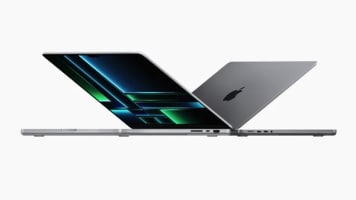
Pros
- M2 Max chip is a major leap forward
- Excellent Liquid Retina display
- Great audio system
- Tons of useful ports
- Sleek and sturdy design
- Great keyboard and trackpad
- Better battery life
Cons
- Expensive compared to similar PCs
Gallery: Apple MacBook Pro 14-inch (2023) | 11 Photos
1/11
Under the hood, though, the MacBook Pro 14 has been dramatically upgraded. It can be equipped with Apple’s new M2 Pro chip, which offers up to a 12-core CPU and 19-core GPU, or the M2 Max, which squeezes in a 12-core CPU and 38-core GPU. Much like Intel’s new hybrid processors, as well as mobile chips from Qualcomm, Apple relies on a combination of core speeds for its CPUs (the 12-core chips, for example, have eight performance cores and four efficiency cores). The previous M1 Pro and M1 Max topped out with 10 CPU cores and 16 or 32 GPU cores, respectively.
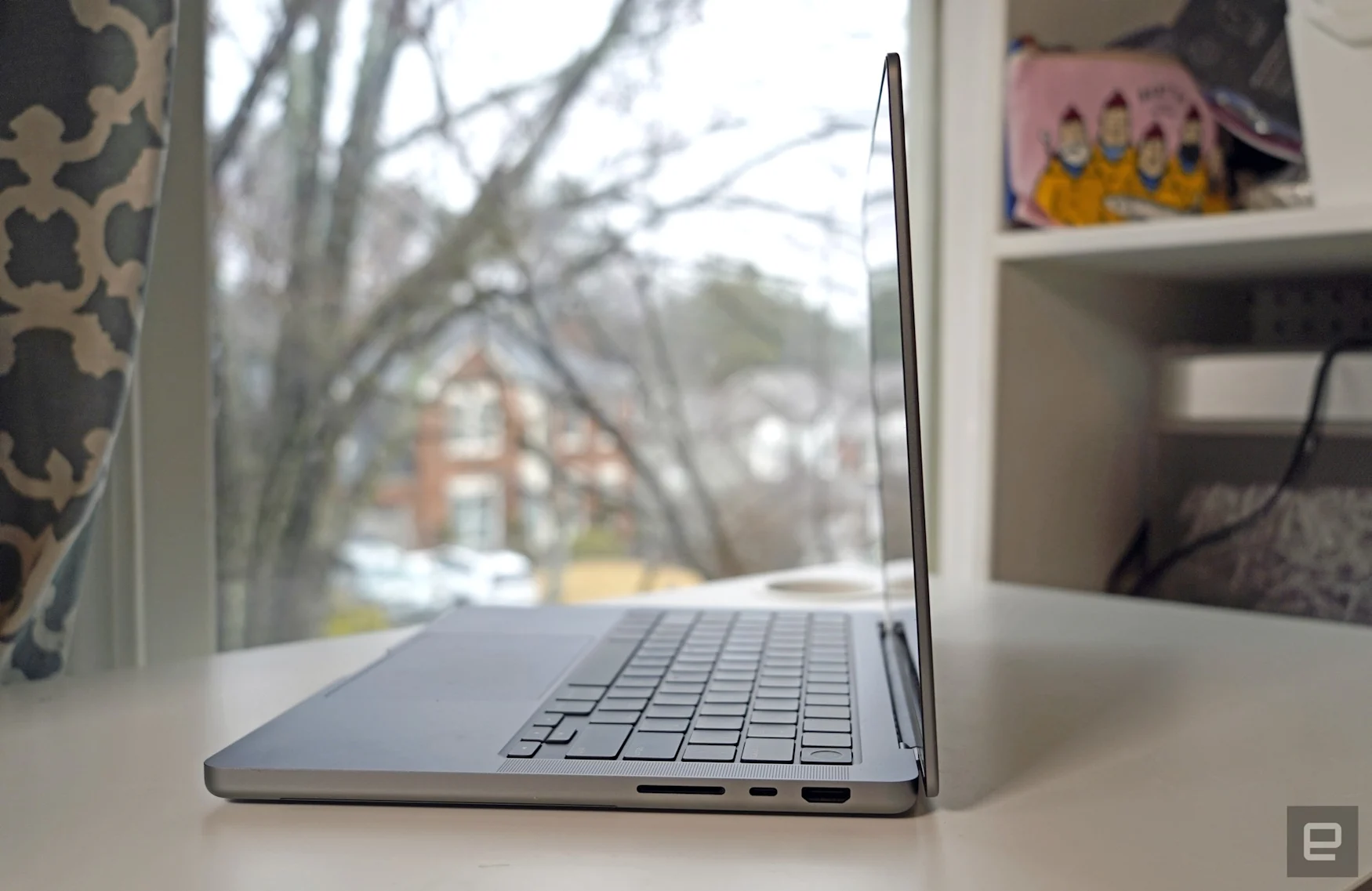
Apple claims the M2 Pro is around 20 percent faster than its predecessor in CPU speeds, and up to 30 percent faster when it comes to graphics. The M2 Max, meanwhile, is up to 30 percent faster than the M1 Max in terms of graphics. We tested the fully-upgraded $3,299 MacBook Pro, which was equipped with the M2 Max chip with 38 GPU cores and 64GB of RAM. It scored around 2,600 points (19 percent) faster in the GeekBench 5 multitasking CPU benchmark, compared to the M1 Max-equipped MacBook Pro 16. It was also 18 percent faster in the GPU-powered GeekBench 5 Compute test and a whopping 60 percent faster than the M1 Max Mac Studio in the 3DMark Wildlife Extreme benchmark.
SOURCE: engadget.com

